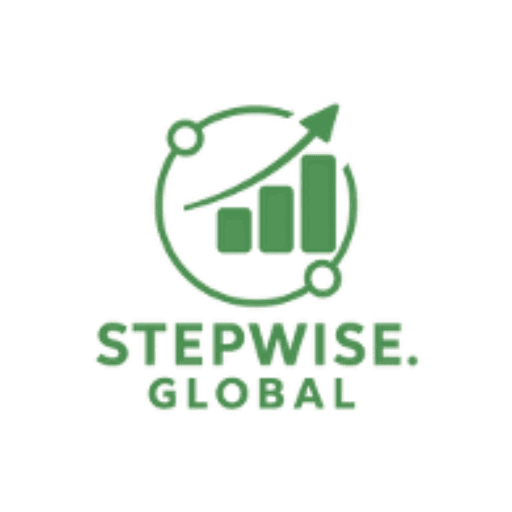Leadership Trust Reborn: Exclusive Best Lessons from Sweden
Kalle reflects on leaders, where did they all go?
Trust is the ultimate test of leadership. Decades of research and lived experience point to three measurable pillars—benevolence, competence, and integrity. Real leaders show they mean well, deliver results, and stay true to an inner compass even when it’s hard. Yet as wars rage, resources are plundered, and ecosystems and communities are degraded, many ask: where are the real leaders now? Are they gone—or simply less visible amid the noise?
As a Swede writing from Swedish experience, I look back to my country’s own arc of leadership—its triumphs, its missteps, and its lessons. While each nation has its own story, Sweden’s offers a compelling case for how real leaders can not only exist, but collaborate across differences to build shared prosperity and trust—and what it costs them to do so.
The three tests of real leaders
– Benevolence: They act with genuine care for people and the common good.
– Competence: They marshal resources and skill to produce concrete, positive outcomes.
– Integrity: They honor principles over convenience, especially under pressure.
These aren’t abstract ideals. They are observable behaviors that build societal trust. When any of the three is missing, trust erodes. Today’s accelerating destruction—of nature, social cohesion, and democratic norms—suggests a shrinking funnel of social-ecological “degrees of freedom.” Yet some commentators shrug: “There’s no evidence it was better before.” Really?
Was it better before? A sober comparison
“Before” can mean many things depending on our age and context, but rigorous comparisons show the destructive power available to poor leadership is far greater today. Not because human DNA has worsened, but because tools for harm—industrial capacity, weapons, and information control—are more potent and pervasive. Three forces in particular amplify damage when mismanaged:
– Rapid population growth met with inadequate global solidarity and care.
– Industrial power at the service of flawed societal designs, including war industries.
– Sophisticated media ecosystems that enable imperial ambitions and narrow opinion corridors, while marginalizing dissent.
The leaders may not be worse. The stakes and tools simply are higher.
Sweden’s golden decades: What real leaders built
My formative years spanned the 1950s to mid-1980s, a period when Sweden achieved remarkable outcomes across multiple dimensions. Leaders—public and private, left and right, union and employer—worked within what became known as the “Swedish model” or “Folkhemmet” (the people’s home). Rooted in the landmark Saltsjöbaden Agreement of 1938, this model evolved through cross-sector co-creation that came to be called the “Saltsjöbaden spirit.” It didn’t gather dust in a drawer; it energized a living culture of collaborative problem-solving.
By the 1970s and 1980s, Sweden’s results were striking:
– Top-tier performance in schools, hospitals, and institutions serving the common good.
– The world’s lowest child mortality.
– Unusually high trust between citizens and institutions, which research shows also strengthens interpersonal trust.
– An innovative, non-governmental but publicly resourced National Labour Market Board (Arbetsmarknadsstyrelsen, AMS), designed to stabilize employment during downturns.
High trust enabled high cooperation. In turn, a wave of globally competitive companies emerged from a small country—Volvo, Saab, Ikea, Scania, Ericsson, Securitas, Atlas Copco, ASEA, and more. Their success powered national prosperity, while the Saltsjöbaden spirit’s norms and policies fostered fair distribution and social cohesion. In effect, Sweden practiced the mixed economic model that Adam Smith himself suggested: harness the dynamism of markets, but culture and constrain them within social boundaries to serve the common good. For a time, Sweden became the world’s wealthiest country per capita, not only by GDP but by quality-of-life and trust metrics.
A few real leaders by name
Many leaders contributed to this story by consistently embodying benevolence, competence, and integrity. If one figure symbolizes the ethos, it is Ernst Wigforss (1881–1977), long-serving finance minister and an architect of the Swedish model. He described himself simply as a democrat, focused on practical solutions. Wigforss helped steer Sweden out of the 1930s depression and championed Folkhemmet’s principles across decades—always aiming for broad societal benefit rather than party advantage.
In foreign policy and humanitarian work, Sweden produced real leaders of rare courage. Dag Hammarskjöld, UN Secretary-General, and Folke Bernadotte, who saved thousands of Jews from the Holocaust with the White Buses, stand out. Imperfect like all humans, they were nonetheless regarded as principled, bold, and skillful—leaders who followed their inner compasses in the face of high stakes. Some paid with their lives.
Where did all the real leaders go?
So, do we see real leaders in Sweden today? Likely yes—but not always at the top of national or geopolitical hierarchies. Structural and cultural shifts have made their work harder to spot. Today’s media often rewards volume over virtue. Meanwhile, the penalties for dissent—deplatforming, reputational attacks, professional exile—can be swifter and harsher, tightening the opinion corridors that stifle honest debate.
Research on cognitive dissonance explains part of the dynamic: people often choose belonging over truth-telling, especially when speaking out threatens identity or livelihood. Real leaders resist this pull. They endure the discomfort of “sticking out,” whistleblowing not to burn things down but to protect institutions they value.
Real leaders in practice: Stepwise progress and FSSD
I know they’re still here because I work with them. Consider the Stepwise group—Swedish owners and executives aligning their companies with a structured, science-based roadmap for sustainability and value creation: the Framework for Strategic Sustainable Development (FSSD) and its ABCD method. They:
– Define robust sustainability constraints (A).
– Assess current reality and risks (B).
– Generate innovations and solutions (C).
– Prioritize and plan stepwise actions with positive ROI (D).
These leaders report that staying the course year after year is challenging—but deeply rewarding. The results build trust inside their organizations and with stakeholders, precisely because benevolence, competence, and integrity are visible in practice. This is what real leaders do: they connect purpose with performance, and principles with profit, one deliberate step at a time.
The FSSD Global platform extends this support to leaders at multiple scales. It helps them clarify “the right thing to do” regarding the greatest threat to civilization—unsustainability—while making it financially and operationally feasible to start now and accelerate over time.
How we can help real leaders lead
If real leaders are less visible, our task is to recognize and amplify them. That requires courage from all of us:
– Reward honesty over spectacle.
– Insist on evidence and long-term thinking.
– Support cross-sector cooperation, even when it complicates partisan narratives.
– Encourage whistleblowers who aim to repair and improve, not merely to disrupt.
In short, we must widen the opinion corridors and honor the three tests of trust in our own conduct—benevolence, competence, integrity.
Conclusion: Calling the real leaders forward
Real leaders have not vanished. They are building, often outside the spotlight, in companies, communities, and coalitions. They are navigating new constraints while holding fast to timeless principles. If we want more of them at the helm, we must make trustworthiness visible and valuable again—starting with how we listen, vote, invest, and collaborate. The world’s funnel of options may be narrowing, but with real leaders—and citizens prepared to back them—the path ahead can still widen.

